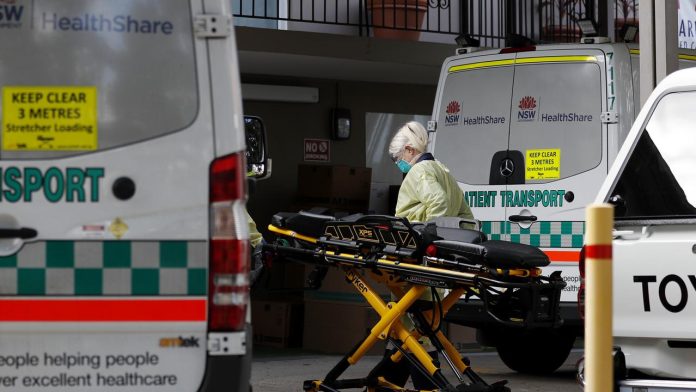[ad_1]
NSW semi-urgent and non-urgent hospital patients spent just under five million hours in emergency departments statewide last year, research from NCA NewsWire shows.
The 4.96 million-hour health burden, sourced through Bureau of Health Information data, comes as NSW hospitals face an unprecedented statewide strain.
Record-high staff burnout and the national decline in bulk-billed primary care access has shunted the burden of a higher rate of presentations to emergency onto under-equipped hospitals.
The Minns government, mirroring its federal counterpart, has expanded urgent care services over its first year in office to meet the rising demand. Past analysis indicated that 41,000 patients had accessed urgent care since the middle of last year, a figure that was likely to rise to 117,000 in over a year.
This 117,000 patient reduction would amount to 351,495 hours of ED care alleviated from the state’s hospitals.
NSW Health Minister Ryan Park urged more Australians to access urgent care services when appropriate.
“Ask anyone who has visited the emergency department recently, and they will tell you that our hospitals are under record pressure,” he said.
“A big part of reducing unnecessary presentations to our hospitals is creating more alternative pathways to care and treatment outside of our EDs, and that’s exactly what we’re doing.”
The 4.96 million hour burden represents the median time from the arrival of all semi-urgent and non-urgent patients at ED, to their leaving time. This median time varied from 3h29m per person to 3h36m.
From January to September semi-urgent presentations were more common than any other category across NSW hospitals.
The total health burden by time across the two patient categories was highest for the year from October to December at 1.26 million hours.
In that same period, 42 per cent of patients spent more than four hours in ED, this figure spiked to 57 per cent in Western Sydney.
In NSW, semi-urgent and non-urgent patients are those who don’t require emergency care or resuscitation. These patients may be presenting with minor injuries, migraines, rashes or aches.
While a large portion of these presentations could be handled by general practitioners, restrictive access hours and appointment pricing can often push these patients onto ED.
On Thursday, Health Minister Ryan Park will announce the completed second stage of redevelopment to the Campbelltown Hospital. The $632 million project is slated to deliver an expanded emergency department, greater outpatient services and maternity wards among other changes.
The most recent non-urgent care project completed was the South Western Sydney Local Health District geriatric urgent care service. It is the 16th of 25 urgent care projects pledged by the state government.
A winter rise in medical presentations has been forewarned nationally after flu rates reached a six-year high at the beginning of 2024.
As reported by Codral’s Cold & Flu Forecast, the majority of Australia’s major influenza hotspots are expected to be in NSW, due to high circulation of tourists and the large population.
According to Cleanbill data, NSW has the greatest metropolitan and regional bulk-billing disparity of any state nationally, thereby pricing a number of rural patients out of primary care and diverting their health burden onto regional hospitals. Sydney has 66 per cent bulk-billing coverage, compared to 18 per cent in Greater NSW.
This leaves the overall bulk-billing rate for Sydney at 66 per cent and the coverage of Greater NSW at 18 per cent. It is the greatest disparity of any state.
Nine of NSW’s 47 federal electorates have three or less clinics accepting new bulk-billed patients.
The Australiasian College for Emergency Medicine (ACEM) reported that the average time, calculated by mean, for all patient categories to exit ED nationally had risen to thirteen hours in 2022. It is recommended patients do not remain longer than eight.
People can access urgent care services by contacting HealthDirect on 1800 022 222 for non-life threatening conditions.
[ad_2]
Source link


